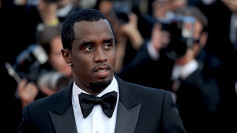Police Scotland has confirmed that author JK Rowling's social media posts about transgender people are not being treated as criminal, despite the introduction of Scotland's new Hate Crime and Public Order Act. The controversial law, which came into force on Monday, has sparked a heated debate about freedom of speech and the potential for abuse.
Rowling, who has been a vocal critic of the transgender rights movement, took to X (formerly Twitter) to challenge police to arrest her for online misgendering. In a series of posts, she listed sex offenders who had described themselves as transgender alongside well-known trans women activists, describing them as "men, every last one of them." The author stated that "freedom of speech and belief are at an end in Scotland if the accurate description of biological sex is deemed criminal."
However, Police Scotland confirmed on Tuesday that they had received complaints about Rowling's social media post but added, "The comments are not assessed to be criminal and no further action will be taken." The decision has been met with relief by Rowling, who said, "I hope every woman in Scotland who wishes to speak up for the reality and importance of biological sex will be reassured by this announcement, and I trust that all women - irrespective of profile or financial means - will be treated equally under the law."
The introduction of the Hate Crime and Public Order (Scotland) Act 2021 has been met with a barrage of criticism, with concerns about how it will be policed and how it could affect freedom of speech. Reports suggest that Police Scotland has received at least 3,000 complaints under the new act in the two days since it came into force.
Despite the controversy, Scottish First Minister Humza Yousaf has robustly defended the legislation, saying it "absolutely protects people in their freedom of expression" while guarding "people from a rising tide of hatred that we've seen far too often in our society." Yousaf himself was the target of racist graffiti found near his family home in Broughty Ferry on Monday, which was recorded under the new act.
Several high-profile celebrities have come out in support of Rowling, including clinical psychologist Jordan Peterson, reality star Caitlyn Jenner, and former Fox host Megyn Kelly. Peterson shared one of Rowling's recent posts criticizing transgender activist Beth Douglas, adding, "What in the world has happened in Scotland? Keep it up @jk_rowling. Let the fools have both barrels."
Jenner, who came out as a transgender woman in 2015 but has caused controversy with her views on transgender issues, called the idea of Rowling facing arrest for "misgendering" absurd. "This has gone way too far! You can 'respect' people's pronouns or not. We cannot force or coerce this type of speech with the threats of jail time," she wrote on X.
Kelly offered to be Rowling's voice if she thinks she is being silenced by the new law, writing, "Whatever true fact you need said about the gender cult, just shoot me a note and I will say it on the air on my show to millions. Scotland can't imprison those of us on this side of the pond; (for now) we still have free speech in America."
British Prime Minister Rishi Sunak also backed Rowling in her criticism of the new law, stating, "People should not be criminalized for stating simple facts on biology. We believe in free speech in this country, and Conservatives will always protect it."
However, not everyone has supported Rowling's views. Transgender TV newsreader India Willoughby, who has often sparred with Rowling on X, questioned why the gender component of the law was attracting so much attention and debate. "Why is this law being presented as 'controversial' by British Media? Scotland opposes hate? Wow. What's telling is that while the new laws also apply to Race and Religion, it's ONLY the fact that transphobic abuse could be stopped that's attracting criticism," she wrote.
Rowling's comments on transgender issues have been a source of controversy since 2018, when she "accidentally" liked a tweet that called transwomen "men in dresses." She has since faced backlash from Harry Potter actors Daniel Radcliffe, Bonnie Wright, Rupert Grint, and Emma Watson, who have all denounced her views.
As Scotland's new Hate Crime Act continues to spark debate, the decision by Police Scotland not to treat Rowling's comments as criminal has been seen as a victory for free speech by some, while others argue that the law is necessary to protect vulnerable groups from hate and discrimination.





